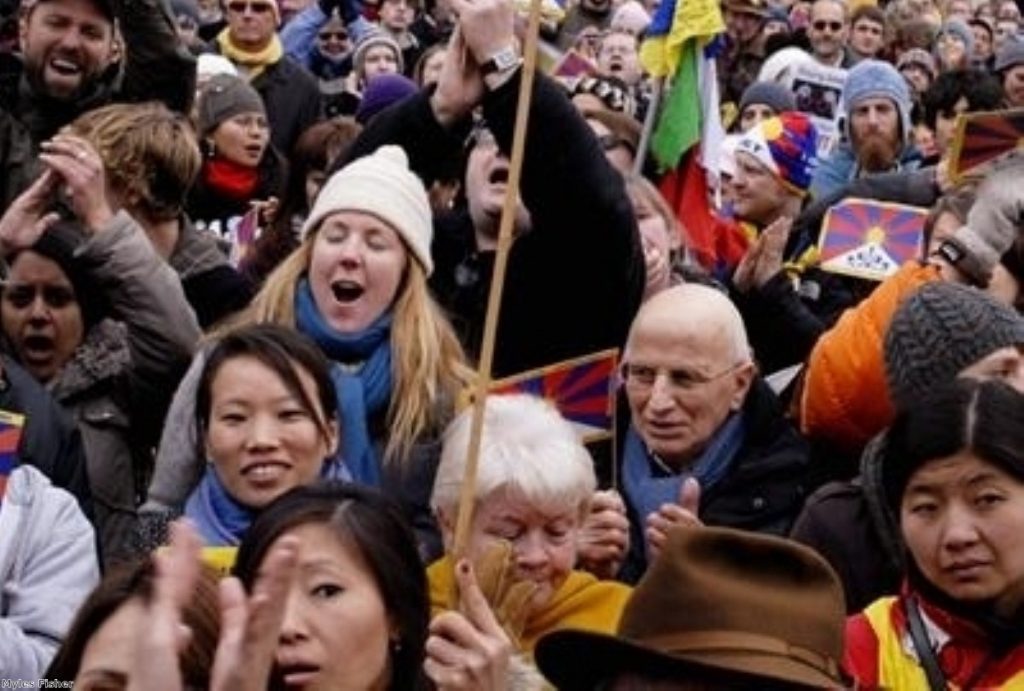Unions targeted: Labour to pay heavy price for lobbying scandal
The government will use the lobbying scandal to clampdown on the trade unions which fund the Labour party.
Downing Street revealed the plans to legislate for a statutory register of lobbyists would also include measures tightening up regulation of trade union membership lists and forcing parties to include union funding of leaflets in their election spending limits.
The moves will be met with deep anger from the Labour party, which relies heavily on union assistance to fight its general election campaigns.
With a bill expected to be published before the summer recess, the government appears set on pushing through the changes before next May, when the spending limit period ahead of the 2015 general election begins.


"This is about the importance of transparency in the political party system," the prime minister's spokesman said.
When asked whether the government had consulted publicly on the issue, he replied: "There has been a process of deliberation within the government on the entire package."
It follows the suspension of two Labour party members of the Lords and the resignation of an Ulster Unionist peer following a sting by the Sunday Times newspaper.
That came hot on the heels of ex-Tory MP Patrick Mercer's resignation of the party whip following a separate sting on Friday.
None of these incidents are thought to have directly involved trade unions, which will only serve to intensify the outrage with which the reforms are being met with by the Labour party.
Presently unions are only obliged to declare what the government calls "marginal costs" – for example, the extra cost of printing a piece of election literature. In future the full costs of producing leaflets will have to be counted, including staffing and premises.
The extra expenditure will then be counted as part of the political party's total permitted election spending. Labour, which is by far the largest beneficiary of trade unions, will find it much harder to mount general election campaigns as a result.
Both those directly affiliated to political parties and organisations contributing £100,000 or more to political parties will be covered by the legislation.
Moves to end the current system of self-certification of trade union membership lists mean unions will have to do more to make sure their membership rosters are kept up-to-date.
An annual audit will be required. Unions will also have to demonstrate how they are storing and monitoring data to a certification officer, who will also be empowered to investigate on their own initiative.
Meanwhile legislation implementing the recall mechanism proposed by the coalition in the last parliamentary session will not begin its passage through parliament until the coalition's final year, No 10 confirmed.
Nick Clegg had introduced a draft recall law in the 2012/13 session but its proposal – that MPs would only face a by-election if they were jailed for under 12 months or if an unaccountable Commons committee decided they deserved it – was rejected by campaigners.
"The government's proposals on recall made it almost impossible for constituents to sack their MP even where they had been found guilty of serious misconduct," Unlock Democracy's director Peter Facey said.
"We need a system that puts the power in the hands of voters, not the establishment in Westminster."
Clegg aims to escape lobbying's 'groundhog day'
Earlier Nick Clegg used an article in the Telegraph newspaper to confirm the statutory register of lobbyists would go ahead.
But his proposed reforms were dismissed by campaigners, who said they had heard "nothing new" from the government.
"Westminster remains a place where power is hoarded, decisions are opaque, and the people who take those decisions are not properly held to account," Clegg wrote in an article for the Telegraph newspaper.
"Our political system has long been crying out for head-to-toe reform."
Efforts to secure a statutory register of lobbyists have been ongoing since before the last general election. Despite losing his defence secretary Liam Fox to a lobbying scandal, David Cameron has failed to act on the issue and the register was, once again, missing from this year's state opening of parliament.
"I know that the absence of the register from last month’s Queen’s Speech raised some concerns," Clegg wrote today.
"So let me be clear: it will happen. Having consulted on the proposal, the detail is being looked at thoroughly in government."
The prime minister's spokesman confirmed this afternoon the register would only cover third-party lobbyists, meaning the bulk of those seeking to influence public policy – including policy officers for all private bodies choosing to represent themselves – would not be included.
The register will be self-declaring but is compulsory. Lobbyists who refuse to participate will face financial penalties and must present a full list of their clients to comply.
Facey added: "We need a comprehensive register which insists on financial information; providing huge loopholes will merely encourage the worst behaviour."
Having been in government for three years, Clegg concluded his article by looking at the time remaining to the coalition.
"Twenty-four months may not be long enough to give Westminster the overhaul it needs," he wrote.
"But it is long enough for us to take further steps to create a cleaner, better politics in which people can put their trust."
His proposed reforms were welcomed by Conservative backbencher Robert Buckland, a member of the Commons' standards and privileges committee which judges MPs' behaviour.
"I think politicians in the Commons have been cleaning up their act," he told the Today programme.
"More clarity about rules and regulations will only help MPs through the sometimes difficult maze their work helps them with."
Matthew Oakeshott, the Lib Dem peer, was less charitable about the behaviour of his colleagues in parliament's upper House, however. He described the Lords as a "stinking swamp" which needs urgent reform.

